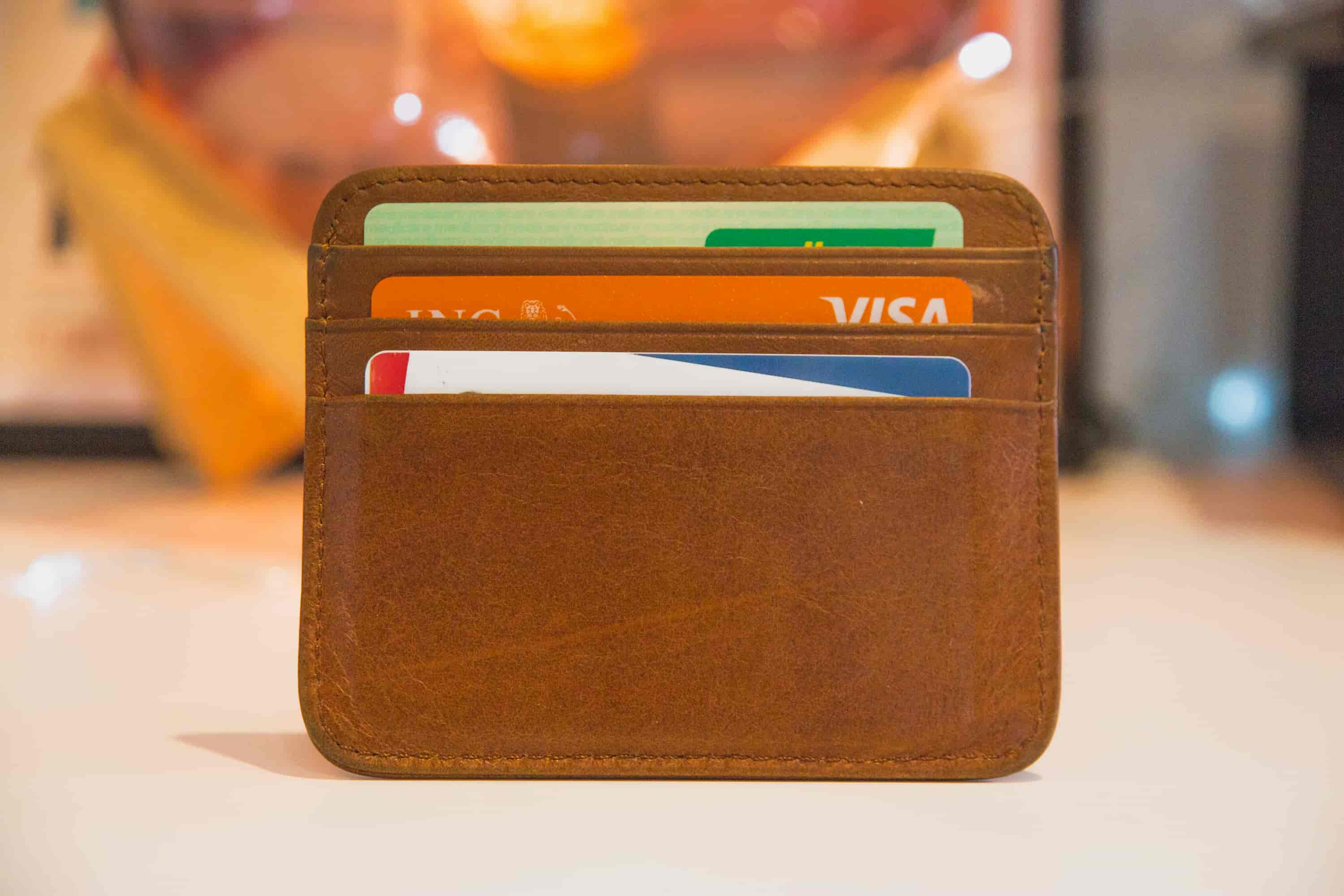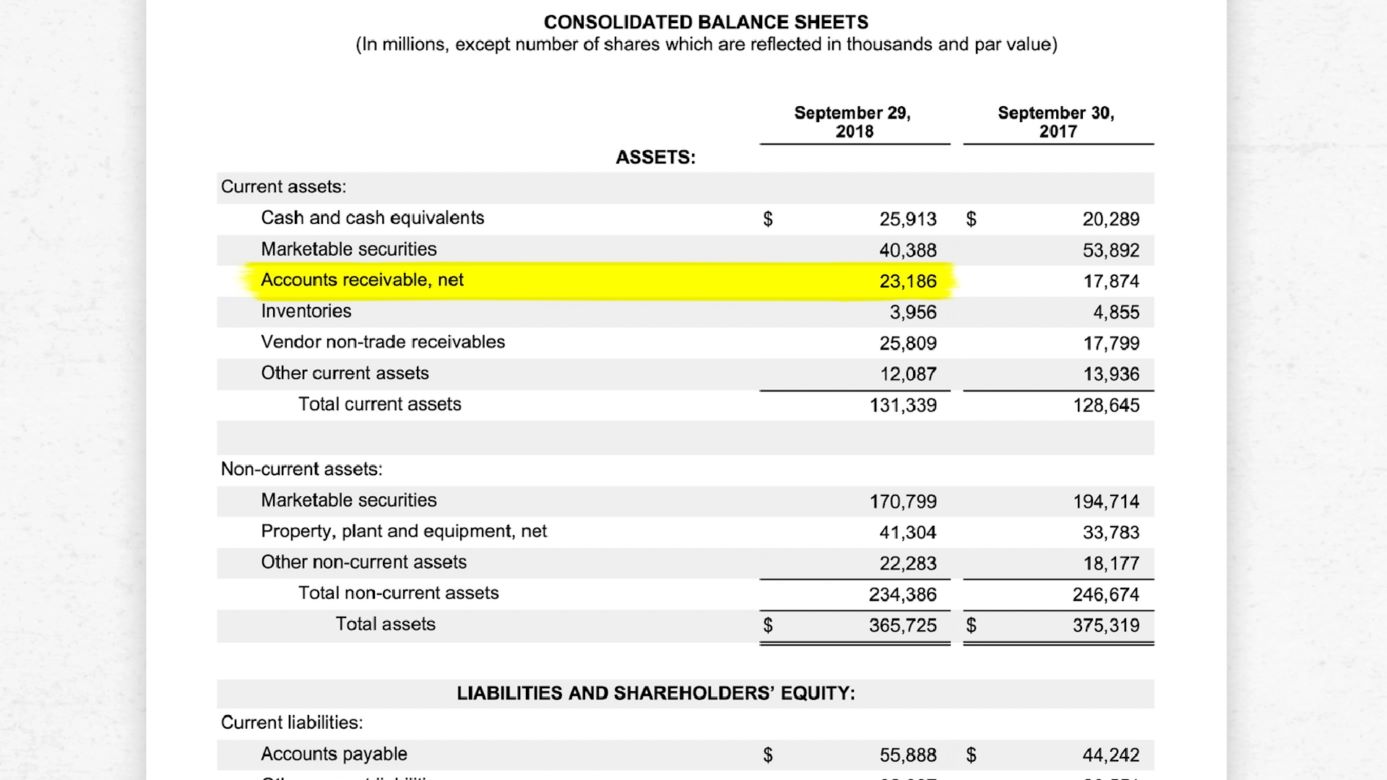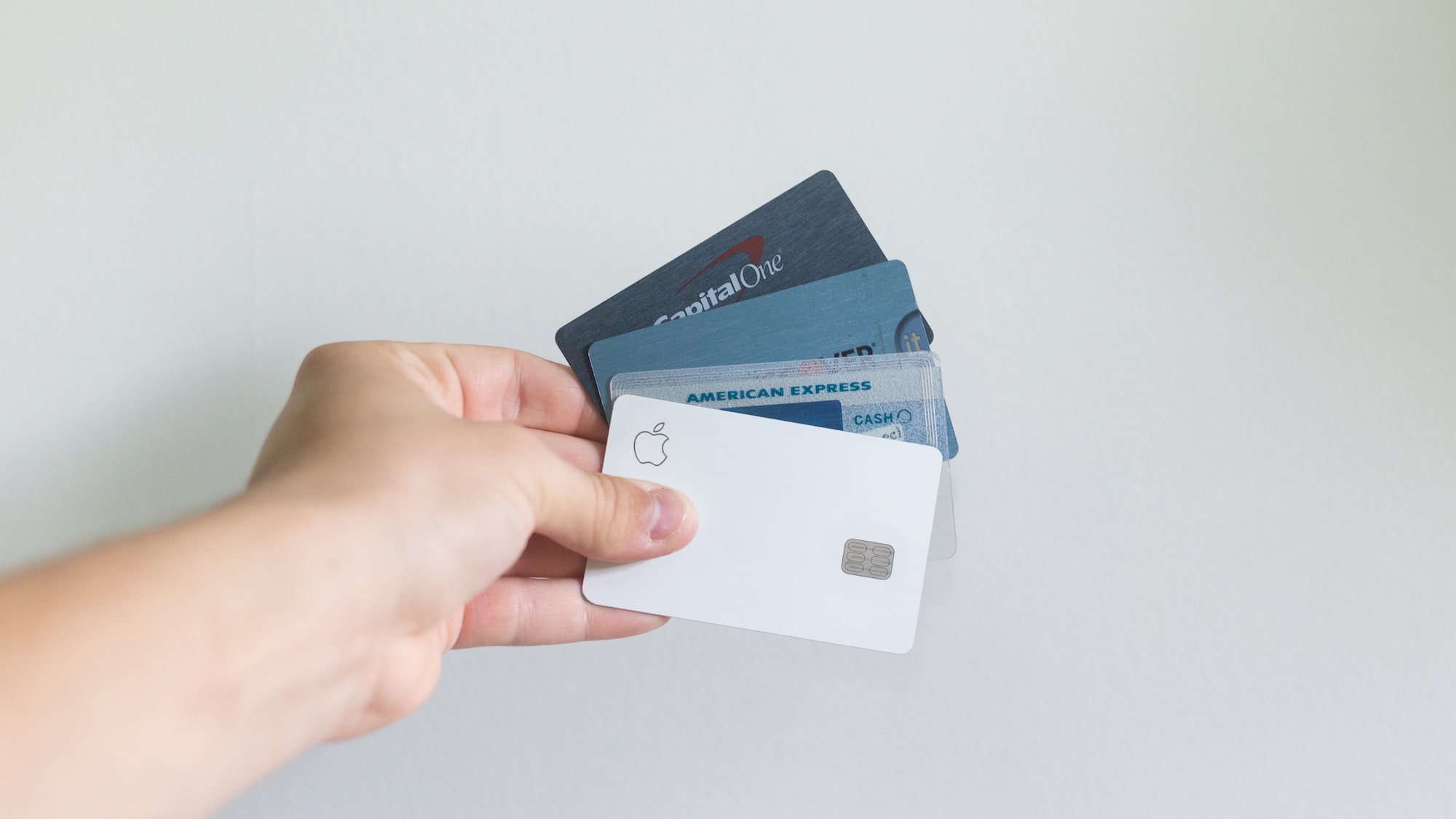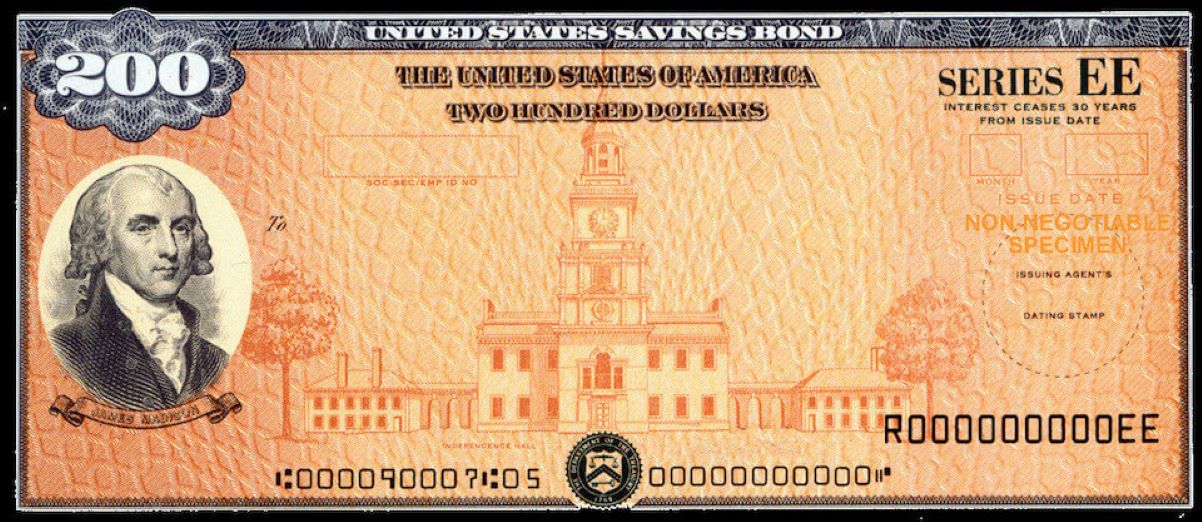

Finance
How To Build Credit As A Teenager?
Published: January 11, 2024
Looking to build credit as a teenager? Discover expert tips and guidance on managing your finances and establishing good credit for a brighter financial future.
(Many of the links in this article redirect to a specific reviewed product. Your purchase of these products through affiliate links helps to generate commission for LiveWell, at no extra cost. Learn more)
Table of Contents
- Introduction
- Understanding Credit
- Why Building Credit as a Teenager is Important
- Important Factors in Building Credit
- Opening a Checking or Savings Account
- Becoming an Authorized User on a Parent’s Credit Card
- Applying for a Secured Credit Card
- Developing Responsible Financial Habits
- Making Timely Bill Payments
- Keeping Credit Utilization Low
- Monitoring Your Credit Report
- Conclusion
Introduction
Building credit is an essential step towards financial independence and stability. While most people start establishing credit in their early adulthood, it’s never too early to begin building credit as a teenager. By laying a solid foundation during these formative years, teenagers can set themselves up for a brighter financial future.
But what exactly is credit? Credit refers to a person’s ability to borrow money or access goods and services with the promise of repayment in the future. It is represented by a credit score, a numerical value that helps lenders assess an individual’s creditworthiness. A good credit score opens the door to better loan terms, lower interest rates, and even approval for rental applications or job opportunities.
Building credit as a teenager might seem challenging, especially without a long credit history or a steady income. However, there are several options and strategies available that can help teenagers establish credit and develop responsible financial habits. This article will provide valuable insights and guidance on how to build credit as a teenager, setting the stage for a strong financial foundation.
It’s worth noting that building credit as a teenager requires parental involvement and support. Parents can play a crucial role in guiding their children, teaching them good financial practices, and helping them navigate the complexities of the credit world. With the right knowledge and tools, teenagers can start building credit early on, positioning themselves for financial success later in life.
Understanding Credit
Before diving into the process of building credit as a teenager, it’s essential to have a clear understanding of what credit entails. Credit is a financial tool that allows individuals to access funds or purchase goods and services on the basis of a promise to repay the borrowed amount with interest.
When it comes to credit, there are two primary types: revolving credit and installment credit. Revolving credit refers to credit lines that can be used repeatedly, such as credit cards. Installment credit, on the other hand, involves borrowing a fixed amount of money and repaying it in regular installments over a specified period, like an auto loan or a mortgage.
Establishing credit involves building a credit history that demonstrates your ability to manage money and repay debts responsibly. A credit history is compiled by credit bureaus, which collect information on your borrowing and payment habits from various sources, such as lenders, credit card companies, and utility providers.
Your credit history is summarized in a credit report, which includes details like outstanding debts, payment history, the length of credit history, and any negative marks, such as late payments or accounts in collections. Based on the information in your credit report, credit scoring models generate a credit score, typically ranging from 300 to 850. The higher your credit score, the better your creditworthiness is perceived by lenders.
It’s important to note that building credit involves a mix of responsible borrowing and financial management. It’s not just about acquiring debt but also demonstrating the ability to manage it effectively. By understanding credit and its components, teenagers can lay a strong foundation for building credit and making smart financial decisions in the future.
Why Building Credit as a Teenager is Important
Building credit as a teenager may seem inconsequential, but it holds significant long-term benefits. Here are some reasons why building credit early is important:
- Establishing a solid credit history: Building credit from a young age allows you to establish a robust credit history that shows lenders your ability to handle credit responsibly. A longer credit history can positively impact your credit score and make it easier to obtain loans or credit cards in the future.
- Access to better loan terms: When you have a good credit score, you become an attractive borrower to lenders. This can lead to better loan terms, such as lower interest rates and higher borrowing limits. It means you can save money on interest payments and have more flexibility in your financial decisions.
- Preparing for major life milestones: As you approach adulthood, you may have significant life milestones on the horizon, such as buying a car or applying for an apartment. Building credit as a teenager gives you a head start in preparing for these milestones. A strong credit profile will boost your chances of getting approved for loans or securing a lease.
- Fostering responsible financial habits: Building credit requires financial discipline and responsible money management. By starting early, teenagers have the opportunity to develop good financial habits, such as budgeting, tracking expenses, and making timely payments. These skills will prove invaluable as they navigate adulthood and manage larger financial responsibilities.
- Gaining financial independence: Building credit empowers teenagers to become financially independent sooner. They can establish their own credit accounts, such as credit cards or loans, instead of relying solely on joint accounts with parents. This independence cultivates a sense of financial responsibility and self-sufficiency.
- Building a foundation for future financial success: The financial habits and decisions made during teenage years can have a lasting impact on one’s financial future. By building credit early and responsibly, teenagers lay a strong foundation for future financial success. They can enjoy the benefits of a good credit score, have access to favorable financial opportunities, and pave the way for a secure and prosperous financial future.
Building credit as a teenager opens doors to more financial opportunities, provides a solid foundation for responsible money management, and sets the stage for a brighter financial future. It’s an investment in your financial well-being that pays off in the long run.
Important Factors in Building Credit
When it comes to building credit as a teenager, several key factors come into play. By understanding and focusing on these factors, you can effectively establish and maintain a strong credit profile. Here are some of the important factors in building credit:
- Opening a Checking or Savings Account: While not directly linked to building credit, having a bank account is a fundamental step towards establishing financial credibility. It demonstrates responsible money management and provides a basis for future financial transactions.
- Becoming an Authorized User on a Parent’s Credit Card: One way for teenagers to start building credit is by becoming an authorized user on a parent’s credit card. This allows them to piggyback on the parent’s credit history and activity, helping establish a positive credit record. However, it’s important for both the parent and teenager to use the credit card responsibly to ensure a positive impact on the teenager’s credit.
- Applying for a Secured Credit Card: A secured credit card is an excellent tool for teenagers to build credit independently. With a secured credit card, the teenager makes a security deposit, which becomes the credit limit. By using the card responsibly and making timely payments, the teenager can establish a positive credit history.
- Developing Responsible Financial Habits: Building credit goes beyond just acquiring credit accounts. It involves developing responsible financial habits, such as budgeting, saving, and managing expenses wisely. These habits show lenders that the teenager is a responsible borrower who can handle credit responsibly.
- Making Timely Bill Payments: One of the most crucial factors in building credit is making timely bill payments consistently. Late payments can have a negative impact on credit scores, so it’s essential to pay bills on time, whether it’s a credit card bill, utility bill, or any other recurring payment.
- Keeping Credit Utilization Low: Credit utilization refers to the percentage of available credit that a borrower uses. It’s advisable to keep credit utilization low, ideally below 30%, as high utilization can negatively affect credit scores. By using credit sparingly and paying off balances in full each month, teenagers can maintain a healthy credit utilization ratio.
- Monitoring Your Credit Report: Regularly monitoring your credit report ensures that the information reported is accurate and up to date. It allows you to identify any discrepancies, fraudulent activity, or errors that could negatively impact your credit. You can obtain a free credit report annually from each of the major credit bureaus.
By focusing on these important factors, teenagers can proactively build credit, establish good financial habits, and set the stage for a positive credit history. Starting early and maintaining a responsible approach to credit will pay dividends in the future, opening up more opportunities for financial growth and success.
Opening a Checking or Savings Account
One of the first steps in building credit as a teenager is to open a checking or savings account. While this step may not directly impact your credit score, it is an essential foundation for establishing financial credibility. Here’s why:
Responsible Money Management: Opening a checking or savings account demonstrates responsible money management. It shows that you are capable of handling and tracking your finances. This responsibility is highly valued by lenders when considering your creditworthiness in the future.
Building a Relationship with a Bank: By opening an account at a bank or credit union, you begin to establish a relationship with that financial institution. A positive relationship can be beneficial when you are ready to apply for credit products, such as a credit card or loan, as your existing account history can work in your favor.
Learning Financial Basics: Having a personal checking or savings account allows you to learn financial basics like budgeting, saving, and managing transactions. These skills are invaluable for future financial success, and they contribute to your overall financial literacy.
Building a Financial Track Record: While a checking or savings account may not directly impact your credit score, it helps build a financial track record. Consistently maintaining a positive balance and making responsible financial decisions create a positive history that can be beneficial when building credit later on.
Establishing Stability for Future Credit Applications: When you establish a banking relationship and maintain a stable account, it helps lend credibility to your financial stability. This can be particularly advantageous when applying for credit cards, loans, or other credit products, as it demonstrates your ability to manage money responsibly.
When opening a checking or savings account, it’s important to choose a reputable financial institution that offers favorable terms and competitive interest rates. Compare various options and consider factors like fees, account features, and online banking capabilities. By starting early with a checking or savings account, you lay the groundwork for responsible financial management and prepare yourself for the next steps in building credit.
Becoming an Authorized User on a Parent’s Credit Card
Another effective method for building credit as a teenager is becoming an authorized user on a parent’s credit card. This strategy allows you to piggyback on your parent’s credit history and activity, providing a head start in building your own credit. Here’s how it works and why it can be beneficial:
Shared Credit History: When you become an authorized user, the credit card company includes the account’s history on your credit report as well. This means that if your parent has a long and strong credit history, it will positively impact your credit profile. Lenders will see that you have been associated with responsible credit usage.
Establishing a Credit Record: Becoming an authorized user on a parent’s credit card allows you to start building a credit record under your own name. This is particularly helpful for teenagers who have not yet established their own credit history. It provides a foundation to build on when you’re ready to apply for credit independently in the future.
Learning Financial Responsibility: Being an authorized user comes with responsibilities. It’s important to use the credit card responsibly and make payments on time. By doing so, you can learn valuable financial lessons and develop good habits like budgeting, tracking expenses, and understanding the consequences of credit card usage.
Parental Oversight and Guidance: This strategy allows parents to supervise their teenager’s credit card usage and financial development. They can help teach responsible spending habits and monitor the account to prevent excessive debt or misuse. Parents can use this opportunity to educate their teenager about credit scores, interest rates, and the importance of building credit responsibly.
Limitations and Considerations: It’s important to note that not all credit card issuers report authorized user accounts to credit bureaus. Before becoming an authorized user, ensure that your parent’s credit card company reports authorized user activity to the credit bureaus. Additionally, both the parent and teenager should have open communication and set clear boundaries and expectations when it comes to credit card usage.
Becoming an authorized user on a parent’s credit card can be an effective way for teenagers to start building credit, benefiting from an established credit history and parental guidance. However, it’s essential to remember that this strategy should be used responsibly and as a stepping stone towards independent credit management in the future.
Applying for a Secured Credit Card
Applying for a secured credit card is an excellent option for teenagers looking to build credit independently. Unlike traditional credit cards, secured credit cards require a cash deposit as collateral. Here’s why applying for a secured credit card can be a beneficial step towards building credit:
Establishing Credit History: A secured credit card allows teenagers to establish a credit history even if they have no prior credit experience. By making regular, on-time payments and keeping the account in good standing, they can begin building a positive credit profile.
Building Credit Responsibly: Secured credit cards provide an opportunity to learn responsible credit card management. It’s important to use the card wisely, make timely payments, and keep the credit utilization ratio low. These responsible habits contribute to a healthy credit history and demonstrate financial maturity.
Gradual Increase in Credit Limit: Many secured credit card issuers offer the option to increase the credit limit over time. Responsible card usage and consistent payments can lead to higher credit limits, providing more purchasing power and improving credit utilization ratios.
Transition to Unsecured Credit Cards: Building a positive credit history with a secured credit card can eventually lead to eligibility for an unsecured credit card. As creditworthiness improves, teenagers may qualify for unsecured credit cards that offer more flexibility and rewards.
Protection and Convenience: Like traditional credit cards, secured credit cards offer convenience and purchase protection. They can be used for online shopping, travel, and emergencies. They also help teenagers develop familiarity with using credit cards responsibly and managing financial transactions.
Choosing the Right Secured Credit Card: When considering a secured credit card, it’s important to compare different options. Look for a card with reasonable fees, low APR (annual percentage rate), and a reporting policy to credit bureaus. Research reputable issuers and read customer reviews to ensure a positive experience.
Applying for a secured credit card is a tangible step towards building independent credit as a teenager. It provides an opportunity to demonstrate financial responsibility, establish a credit history, and pave the way for future financial goals. It’s important to use the secured credit card wisely, make payments on time, and eventually transition to unsecured credit cards as creditworthiness improves.
Developing Responsible Financial Habits
Building credit as a teenager goes hand in hand with developing responsible financial habits. Cultivating these habits early on sets the foundation for a lifetime of financial success. Here are some key habits to focus on:
Budgeting: Creating and sticking to a budget is essential for managing your finances effectively. Track your income and expenses, prioritize savings, and allocate your money wisely. Budgeting helps you avoid overspending, build emergency funds, and stay on top of your financial obligations.
Saving: Developing a habit of saving money regularly is crucial. Set aside a portion of your earnings for short-term goals, such as purchasing a car or afford occasional expenses. Additionally, prioritize long-term savings for emergencies, education, or retirement. Consistent saving habits demonstrate discipline and financial responsibility.
Avoiding Impulse Purchases: Think twice before making spontaneous purchases. Consider whether the item is something you truly need or if it aligns with your financial goals. Practicing delayed gratification can help you avoid unnecessary spending and stay on track with your budget.
Evaluating Needs vs. Wants: Learn to distinguish between essential needs and discretionary wants. Focus on fulfilling your basic needs, such as food, shelter, and healthcare, before indulging in non-essential items. This practice helps prioritize your spending and prevents unnecessary debt accumulation.
Regularly Reviewing Expenses: Take time to review your expenses regularly. Look for areas where you can cut back or find more cost-effective alternatives. Eliminating unnecessary expenses allows you to save more and allocate your funds towards building credit and achieving your financial goals.
Setting Financial Goals: Establish short-term and long-term financial goals. These goals can include saving a certain amount of money, paying off debts, or building an emergency fund. Setting clear goals provides motivation and direction, helping you make informed financial decisions.
Seeking Financial Education: Take advantage of educational resources to enhance your financial knowledge. Attend workshops, read books, or explore online resources to learn about topics such as credit management, investments, and retirement planning. The more you know, the better equipped you’ll be to make sound financial decisions.
Consistent Monitoring of Finances: Regularly monitor your bank accounts, credit card statements, and credit reports. This helps you catch any errors, detect fraudulent activity, and stay on top of your financial situation. Being vigilant about your finances ensures accuracy and protects you from potential financial setbacks.
Developing responsible financial habits as a teenager sets the stage for a lifetime of financial well-being. Adopting these habits early on instills discipline, helps avoid unnecessary debt, and prepares you to navigate the complexities of credit and personal finance. By practicing responsible financial habits, you’ll build a solid foundation for your credit journey and achieve your financial goals.
Making Timely Bill Payments
Making timely bill payments is a critical factor in building credit as a teenager. Timely payments demonstrate responsible financial behavior and contribute to a positive credit history. Here’s why it’s important and how to ensure timely payments:
Impact on Credit Score: Payment history is one of the most significant factors in determining your credit score. Consistently making payments on time shows lenders that you are reliable and capable of managing credit responsibly. On the other hand, late or missed payments can have a detrimental effect on your credit score.
Avoiding Late Payment Penalties: Making timely bill payments helps you avoid late payment fees and penalties. These fees can add up over time and strain your finances. By paying bills on time, you save money and maintain a positive financial standing.
Better Interest Rates and Terms: Lenders look favorably upon borrowers who have a history of making timely payments. When applying for loans or credit cards, having a track record of on-time payments can result in lower interest rates and more favorable terms. This can potentially save you thousands of dollars over the life of a loan.
Setting Up Automated Payments: To ensure that you never miss a payment deadline, consider setting up automated payments. Many banks and service providers offer this option, allowing you to authorize automatic deductions from your bank account on scheduled payment dates. This way, you can have peace of mind knowing that your bills are being paid on time without the hassle of manual payments.
Creating Payment Reminders: It’s also helpful to set reminders for bill due dates. Use calendar apps, reminders, or electronic alerts to notify you a few days in advance of when bills are due. This gives you ample time to prepare funds and make the payment promptly.
Adjusting Due Dates: If you find that your bill due dates are clustered around the same time of the month and it becomes challenging to manage them effectively, consider contacting your service providers to request a change in due dates. By spreading out payments, you can better manage your cash flow and ensure timely payments for each bill.
Communicating with Lenders: In the event that you are facing financial difficulties and are unable to make a payment on time, it’s crucial to communicate with your lenders. Reach out to them as soon as possible to discuss your situation and explore possible alternatives. Some lenders may be willing to work with you by offering a temporary reduced payment or adjusting the due date.
Making timely bill payments is a foundational habit for building and maintaining good credit as a teenager. By consistently meeting payment deadlines, you foster a positive payment history, improve your creditworthiness, and pave the way for future financial opportunities.
Keeping Credit Utilization Low
Another important factor in building credit as a teenager is keeping your credit utilization low. Credit utilization refers to the percentage of your available credit that you actually use. Here’s why it’s important and how to maintain a low credit utilization:
Impact on Credit Score: Credit utilization plays a significant role in determining your credit score. It is recommended to keep your credit utilization below 30% of your available credit. High credit utilization can indicate financial dependency and may negatively impact your creditworthiness. By keeping it low, you demonstrate responsible credit management.
Better Creditworthiness: Lenders view low credit utilization as a positive indicator of financial stability and responsible borrowing. It shows that you are using credit sensibly and not relying heavily on borrowed funds. This can improve your creditworthiness and increase your chances of future credit approvals at favorable terms.
Regularly Monitor Credit Limits and Balances: To keep your credit utilization in check, regularly review your credit card balances and credit limits. Understanding your available credit and how much you’ve used helps you make informed decisions about spending and payment priorities.
Pay Off Balances in Full: Aim to pay off your credit card balances in full each month, if possible. This allows you to avoid accruing interest charges and helps maintain a low credit utilization ratio. If paying off the full balance is not feasible, make sure to pay more than the minimum payment to reduce the overall debt.
Distribute Purchases Across Multiple Cards: If you have multiple credit cards, consider distributing your purchases across them instead of maxing out a single card. This can help keep individual credit card balances low and improve your overall credit utilization ratio.
Increase Credit Limits or Open New Credit: Another way to lower your credit utilization is to increase your credit limits or open new credit accounts. However, it’s essential to exercise caution and use these options responsibly. Increasing credit limits or opening new accounts should not lead to excessive borrowing, as it can negatively impact your credit score and financial stability.
Refrain from Closing Credit Cards: Closing credit cards may seem like an effective way to reduce credit utilization, but it can have unintended consequences. Closing a credit card reduces your available credit, which can increase your credit utilization ratio. Instead of closing accounts, consider keeping them open and using them occasionally to maintain a positive credit history.
Regularly Review Credit Reports: Monitoring your credit reports allows you to verify that the reported balances and credit limits are accurate. If you notice any discrepancies, contact the credit bureaus to correct the information. Ensuring accurate reporting is crucial for maintaining an accurate credit utilization ratio.
Keeping your credit utilization low is essential for building and maintaining a healthy credit profile as a teenager. By being mindful of your spending, paying off balances, and managing your credit wisely, you can demonstrate to lenders that you are a responsible borrower and establish a strong foundation for financial success.
Monitoring Your Credit Report
Monitoring your credit report is a crucial aspect of building credit as a teenager. Regularly reviewing your credit report allows you to track your credit history, detect errors, and protect yourself against identity theft. Here’s why monitoring your credit report is important and how to do it effectively:
Identifying Errors and Inaccurate Information: Mistakes and inaccuracies can occur on credit reports, potentially impacting your creditworthiness. By monitoring your credit report, you can quickly identify any errors, such as accounts you don’t recognize or incorrect personal information. Correcting these errors is essential for maintaining an accurate credit profile.
Protecting Against Identity Theft: Monitoring your credit report regularly can help detect signs of identity theft. If you notice unfamiliar accounts or suspicious activity on your report, it could be an indication that someone has fraudulently used your identity. Promptly addressing identity theft is crucial to minimize any potential damage to your credit standing.
Tracking Credit History and Progress: Monitoring your credit report allows you to track your credit history and observe how your credit profile evolves over time. You can see how your payment history, credit utilization, and account activity impact your credit score. This information is valuable in assessing your financial progress and identifying areas for improvement.
Understanding Creditworthiness from Lender’s Perspective: By reviewing your credit report, you can gain insights into how lenders view your creditworthiness. You can see the factors that influence your credit score and identify any negative information that may be impacting your ability to secure credit or desirable interest rates.
Checking for Fraudulent Activity: Monitoring your credit report helps you detect any suspicious or fraudulent activity. This may include accounts opened in your name without your knowledge or unauthorized inquiries made on your credit. Timely identification of fraud allows you to take immediate action, such as freezing your credit or reporting the fraud to the relevant authorities.
How to Monitor Your Credit Report: You can monitor your credit report by requesting a free copy from each of the major credit bureaus (Equifax, Experian, and TransUnion) annually. Review the contents of the report carefully, paying attention to personal information, account details, and any discrepancies. Alternatively, you can sign up for credit monitoring services that provide regular updates on your credit report and alert you to any changes or potential issues.
Addressing Errors or Discrepancies: If you notice any errors or discrepancies on your credit report, it’s crucial to take immediate action. Contact the credit bureaus to dispute inaccurate information and provide any necessary documentation to support your claim. The credit bureaus are required to investigate and correct any errors within a reasonable period of time.
Regularly monitoring your credit report gives you peace of mind, ensures the accuracy of your credit information, and helps protect your financial well-being. By being proactive in reviewing and addressing any issues, you can maintain a strong credit profile and successfully navigate the credit landscape as a teenager and beyond.
Conclusion
Building credit as a teenager is a crucial step towards financial independence and success. By starting early and implementing effective strategies, teenagers can establish a solid credit foundation that will benefit them for years to come. Understanding credit, developing responsible financial habits, and focusing on important factors such as timely bill payments, low credit utilization, and monitoring credit reports are key to building a strong credit profile.
Opening a checking or savings account helps establish financial credibility and provides a platform for responsible money management. Becoming an authorized user on a parent’s credit card and applying for a secured credit card offer opportunities to build credit history and develop responsible credit usage habits.
Developing responsible financial habits, such as budgeting, saving, and evaluating needs versus wants, fosters good money management skills that will serve teenagers well throughout their lives. Making timely bill payments and keeping credit utilization low positively impact credit scores and increase creditworthiness.
Monitoring credit reports regularly allows teenagers to track their credit history, detect errors or fraudulent activity, and gain insights into their creditworthiness from a lender’s perspective. It also empowers them to take prompt action to resolve any discrepancies or address potential identity theft.
By following these strategies and incorporating responsible financial habits into their daily lives, teenagers can build a strong credit foundation and position themselves for future financial success. Building credit as a teenager requires patience, discipline, and guidance from parents or guardians. It’s an investment in their financial well-being that will pay dividends as they navigate adulthood and take on more significant financial responsibilities.
Remember, building credit is a journey that takes time and effort. By starting early and focusing on the key aspects outlined in this article, teenagers can build a solid credit foundation and set themselves up for a brighter financial future.














